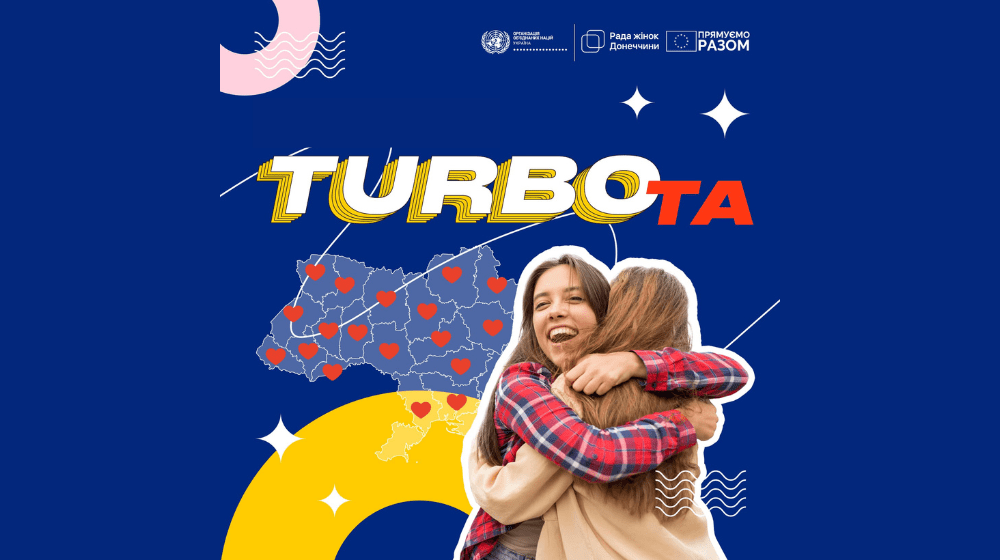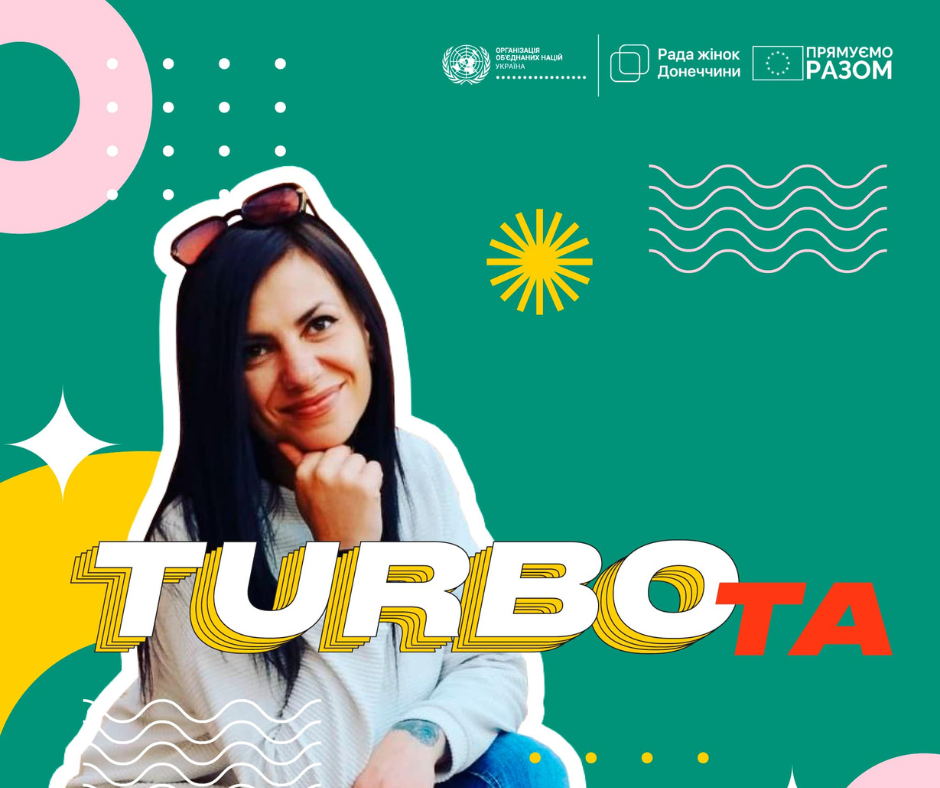The project was implemented by the NGO "Women's League of Donetsk region," an implementing partner of UNFPA within the framework of the UN Recovery and Peacebuilding Programme with the financial support of the European Union. Youth specialist Sasha Kulichenko, psychologist Yuliya Pavlova and youth entrepreneurship specialist Mykhailo Yurtin-Zavizny conducted more than 250 consultations during the five months of the project. And every consultation provided verified information, a thorough answer to a young person's question.
But even after counseling, young women and men stayed in touch with our TURBOta specialists and shared their achievements.
"Hello!
Thank you for your help.
My brother and I have already left our city (non-Government-controlled area). We are in Ukraine.
In Zaporizhzhia.
The road was very difficult, but we managed it. Everything is fine, we are already close to our relatives!
Thank you."
"Hey! I found recruitment for the school of editors, I recently had an interview. Thank you!"
"Thank you! I have already received confirmation that I will be given a grant for the purchase of new equipment!”
Every "thank you" is priceless because it is not just gratitude. This is a problem which was solved. Someone lost their job and didn't know where to work in a new place. Others wanted to leave non-Government-controlled areas of Ukraine. Some project participants lost their profitable businesses in Mariupol but did not give up, so now they are resuming their businesses in another community.
Since May 2022, more than 100 young people have become participants of the project, each with their problems, painful questions, and confusion. But the specialists of TURBOta were able to support them, help solve urgent issues and help them understand how to move forward. And most importantly, they felt they were not alone and had a place to get help and support. After all, this is exactly what #TURBOta is.
“TURBOta is about paying attention. And every review, every feedback message only confirms that we are doing the right things," says project coordinator Darya Markovych. More than 100 youth representatives were able to restore their internal resources and solve urgent issues. Some became support for loved ones, some found themselves volunteering, and some understood where and how to move forward. And every such story is a victory.
Together we are strong. Together - we can do more. Let's take care of each other, and then there will be many more happy and confident people in Ukraine and the world."
During the 5 months of the project, Sasha Kulichenko, a youth specialist, helped young people figure out how to leave non-Government controlled territories, find housing and temporary shelter, receive humanitarian aid, issue or renew the necessary documents, and find training courses. Sasha said that when such terrible things as war happen, many problems appear at once.
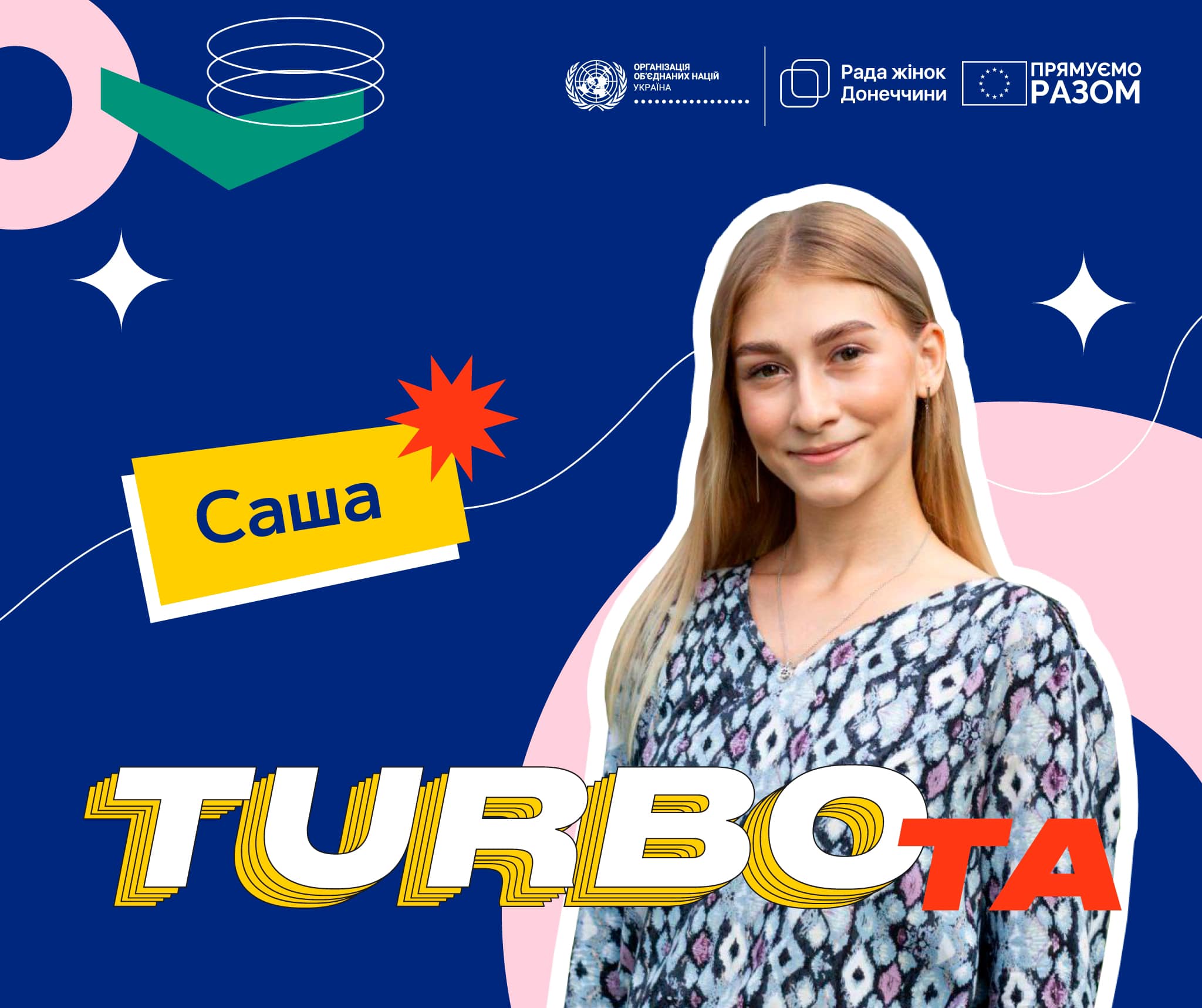
"It seems that it is impossible to solve all of them. Therefore, I expected from the project that it would become just that opportunity for people to cope with their experiences and problems," she noted.
"My expectations were met, and even more. I noticed that TURBOta is not only an opportunity for participants to get advice or learn about humanitarian aid. This just cares about what each of us needs now. In the project, I tried to find out how the participants were doing after the consultations, whether they felt better, and then I came back with these questions again and again."
Mykhailo Yurtin-Zavizny, a specialist in youth business and entrepreneurship. During the five months of the project, he helped participants understand the current taxation system, open or close a sole proprietorship, get a grant for business development, update their resumes, and find a job. Mykhailo noted that each consultation always went "beyond the technical limits" of the issues the participants had been asking about from the beginning.
"We communicated, got to know each other, learned about needs, redirected not only to other project specialists, but also to friendly organizations, structures for receiving help, and narrow-profile consultations," Mykhailo added.
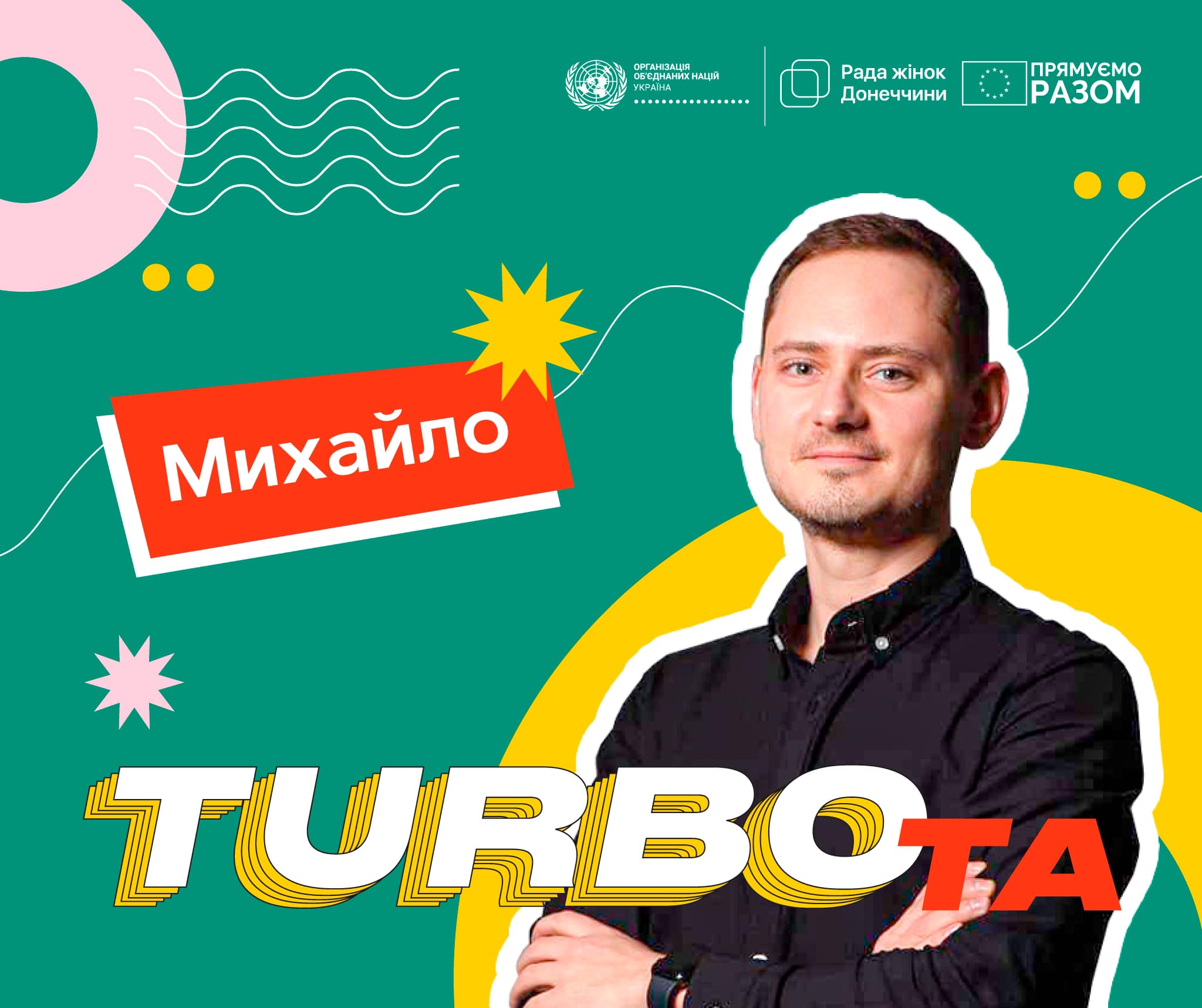
"In fact, for many, we became loyal friends, performing the functions of case managers, as we accompanied youth along a "road map," which consisted of needs identified during communication, consultations, and getting to know each other. I am very glad that our team was able to help those who needed it and that we were able to be close to those who lost homes, relatives, and acquaintances."
"But most of all, the question "How and where to pay taxes?" surprised me most. 5 female entrepreneurs who applied for consultation are abroad but continue their entrepreneurial activities. Also, family businesses of young entrepreneurs who stayed and worked in Ukraine have the same question: "Where to pay and how to make sure that the money goes to Ukraine since we are from Mariupol, Kherson, and Melitopol." No one even asked: "Are there any discounts, benefits, or deferrals?". Here, the firm decision is to pay taxes without exception. I am proud of our graduates!" he shared his emotions.
During five months of #TURBOta, psychologist Yulia Pavlova helped curb the effects of stress, overcome difficult memories, control thoughts and emotions, learn effectively, work, and live in conditions of uncertainty and constant anxiety for oneself and loved ones.
She noted that at the first stage, most requests touched on how to start living again, release emotions, and not feel guilty.
"Then the questions moved to the sphere of relationships: with partners, in the family, with parents or children. There are more and more inquiries about employment, returning to study, and volunteering. People are beginning to actively integrate into social life," noted the psychologist of the project.
She also talked about her busy schedule - 6 working days from 10 to 7, with a small break.
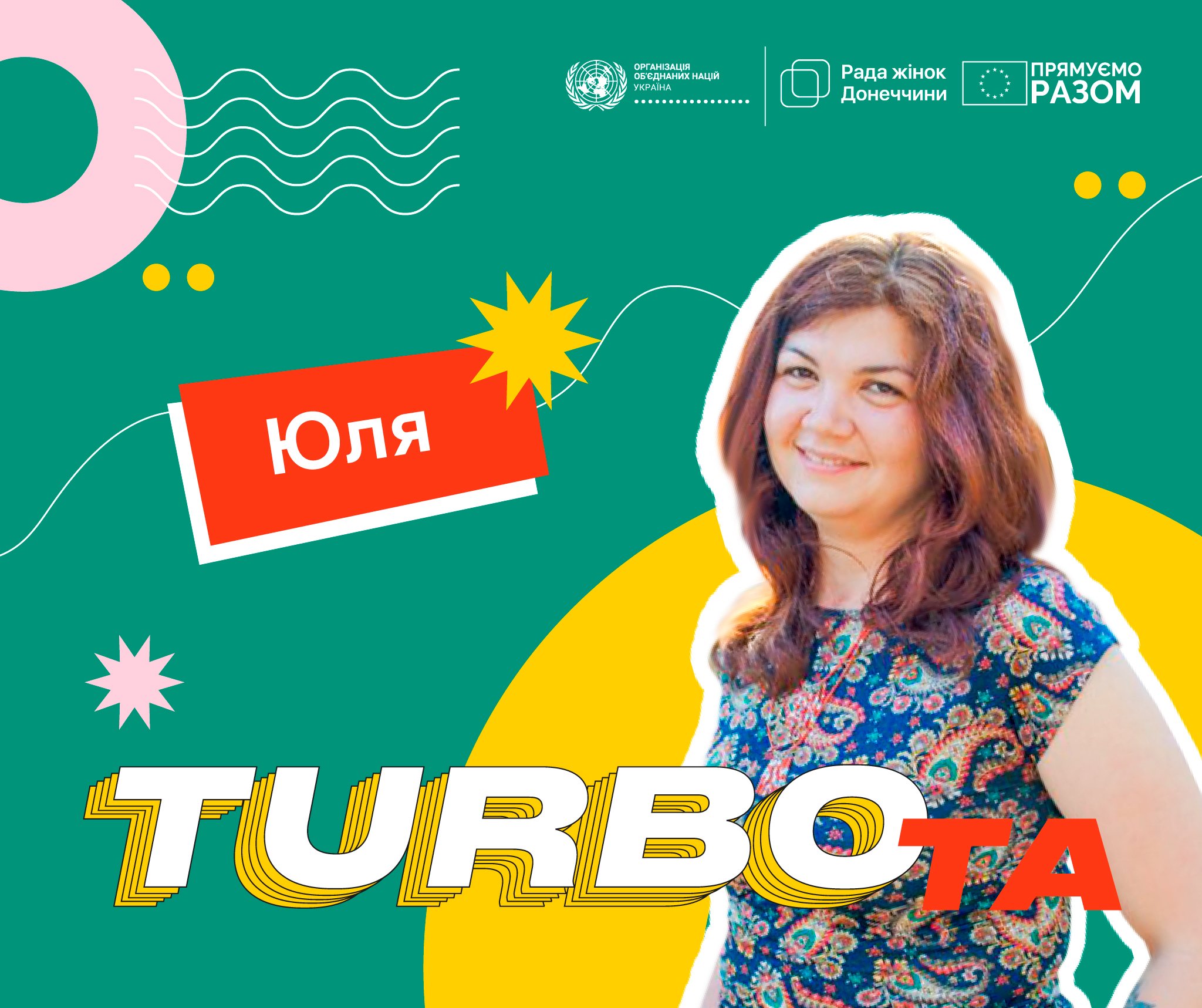
"Consultations, training, group consultations, writing projects, and so on. It's a tough, intense schedule. Most of the stories of the last six months are difficult experiences and losses, so Sunday is a day of silence when I am out of communication and social networks as much as possible. Like every psychologist, I have to give only those tools that I have experienced myself, so I use all the same recommendations that I provide in TURBOta: I have a schedule and my rituals, I contain emotions, and I am engaged in information hygiene. Simple steps help. Sometimes I give myself a day for an emotional slump, it's also necessary," she added.
The #TURBOta project was critical when a large number of young people were completely confused. We helped them to understand who to turn to for help, become more resilient and how to move forward.

